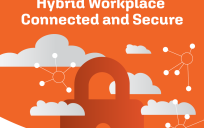Healthcare technology is constantly evolving, and since much of it is accessible online, it is more important than ever for facilities and healthcare agencies to have comprehensive security measures in place. Without these safeguards, sensitive patient data could easily get into the wrong hands, and the effectiveness of medical devices could also be impacted. Healthcare agencies need to better understand the importance of maintaining a culture that holds security to the highest standard.
Cybersecurity and Medical Data
Recently, the healthcare industry has been catching the attention of online hackers that are out to access medical data. In February 2015, Anthem reported a data breach in which hackers accessed approximately 80 million healthcare records, and a year earlier, a hospital operator out of Tennessee called Community Health Systems had 4.5 million records accessed. Up until recently, the healthcare industry hasn’t been a major target of online hacking, so it has been slow to properly shield the records of its patients.
Cybersecurity and Medical Devices
Just like other computer systems, medical devices can become vulnerable to potential security hacks, which could possibly impact the effectiveness and safety of the device. This vulnerability is only expected to increase in the future, as medical devices are increasingly being connected online to share information with other devices and hospital networks.
To manage and mitigate the risk of cybersecurity threats, the FDA outlines that it is important that both health care facilities and medical device manufacturers take steps to assure that safeguards are in place that will reduce the chances of equipment failure due to cybersecurity issues. This could include introducing malware into medical equipment or an entity that gains unauthorized access to the settings of medical devices.
Cybersecurity and Mobile Medical Apps
Mobile technology is offering new and innovative ways for the health care industry to deliver services to patients. Mobile apps can help people to better manage their own wellness and health while promoting healthy living. These tools are being adopted quite quickly, and the FDA has encouraged their creation to improve healthcare while providing consumers and medical providers with essential health information.
Unfortunately, this information has also become a target for cyber-security breaches. With this technology available, health care agencies are no longer just responsible for keeping information safe within the walls of their own facilities, but they will also need to make sure that their mobile and online applications have the safe safeguards. Additionally, patients need to take some responsibility in protecting their own healthcare information, investing in personal virus protection software and other programs that can keep them safe against attacks from hackers and identity thieves.
How Healthcare Agencies Can Improve Cybersecurity
Protecting medical data, equipment, and other information within a medical community needs to be a top concern in healthcare organizations, and there are several ways that healthcare IT departments can better protect the information of their patients:
- Install and maintain virus protection software. It is crucial that hospitals, clinics, and other healthcare agencies use antivirus products like Immunet, Avast, Quick Heal that continuously provide updated protection against malware, viruses, and other codes that can hack a system. Healthcare agencies will also want to select a program that contains a firewall that will further protect against threats and intrusions from outside sources.
- Establish a good security culture. Healthcare organizations need to build an organizational culture that understands the importance of security and takes adequate steps to protect it. Managers need to conduct frequent information security training and education to ensure that personnel are taking appropriate steps to improve cybersecurity.
- Limit network access. Healthcare IT workers need to limit network access by prohibiting employees from installing software programs without prior approval. Casual network access should be prohibited for visitors, and when wireless routers are used, they should only be set up and operated in an encrypted mode. Additionally, instant messaging, file sharing, and other applications should only be installed with explicit approval and review from IT managers.
- Control physical access. Cybersecurity breaches don’t always occur via hackers from afar, and at times, unauthorized access may occur within your own facility. For this reason, it is important that healthcare organizations limit the likelihood that devices can be tampered with, stolen, or lost. It is important to enforce policies that limit access to information and devices by keeping equipment in locked rooms and restricting the removal of certain devices from secure areas.
While adoption of these techniques isn’t a guarantee of compliance with state and federal laws, they can help healthcare organizations toward achieving the goal of having the necessary cybersecurity protections in place. If you have additional tips for how to improve cyber-security within an organization, feel free to share them here.





Leave a Reply
You must be logged in to post a comment.